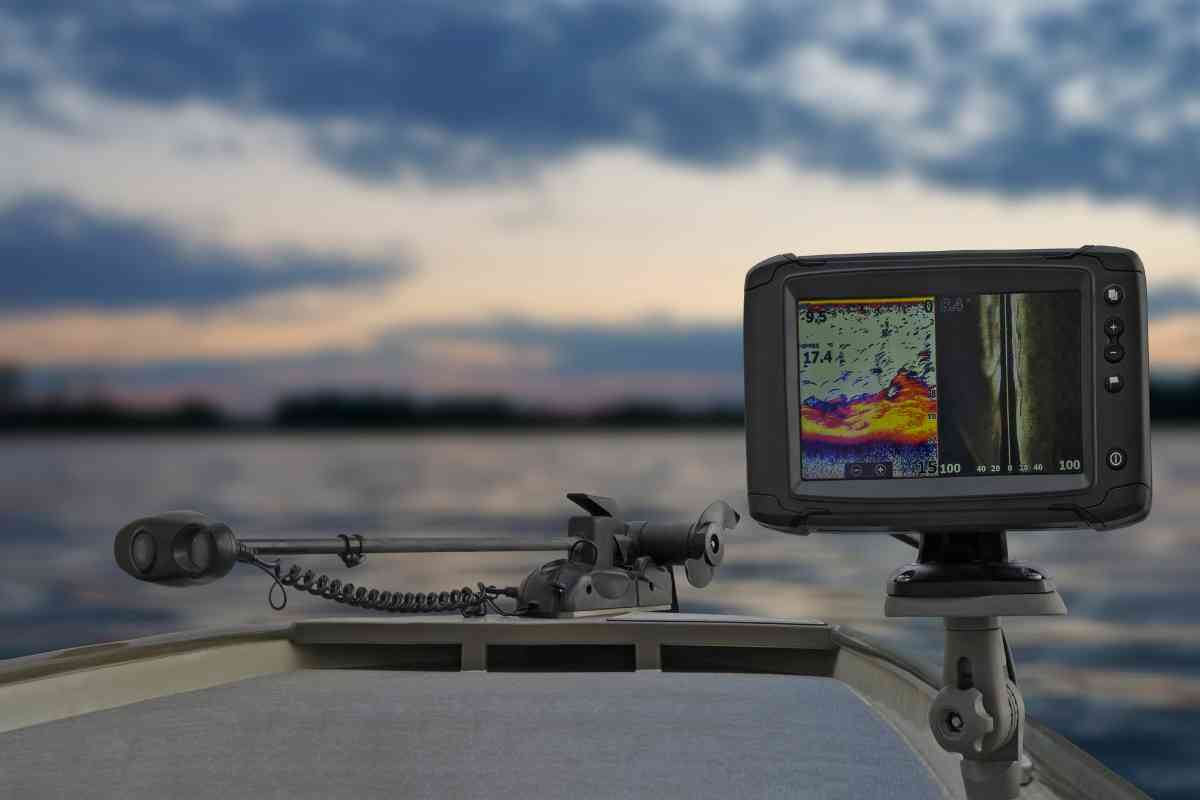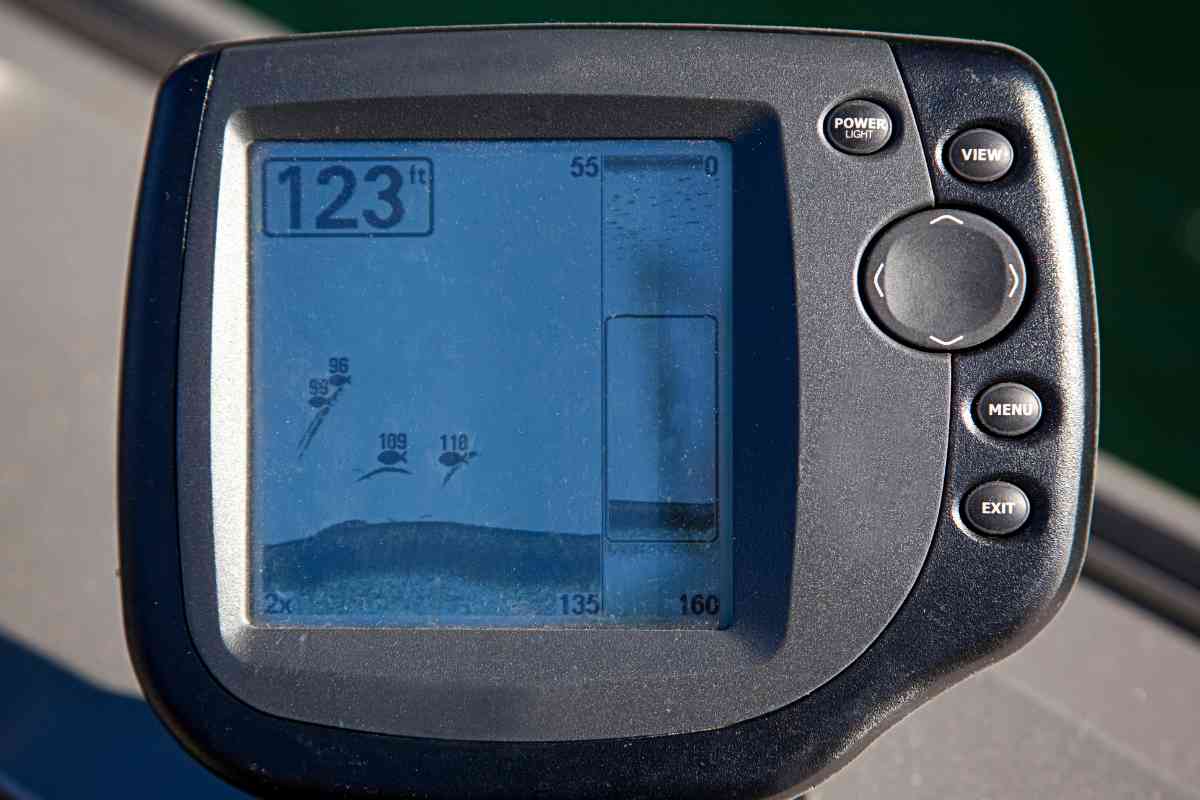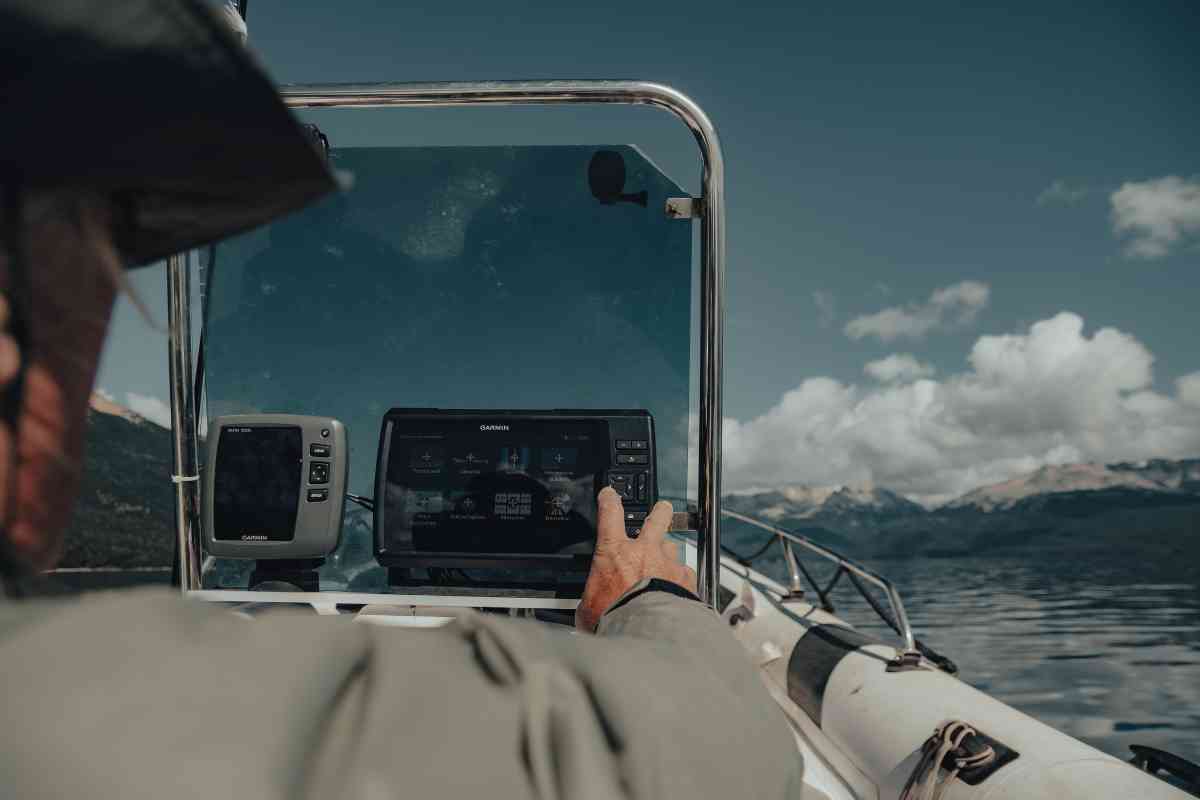Bass Boat Electronics: Enhance Your Fishing Experience with the Latest Tech
Bass fishing is a popular sport that requires a lot of skill and knowledge. One of the most important aspects of bass fishing is having the right equipment, and that includes the electronics on your boat. With the right electronics, you can locate fish, navigate waterways, and stay safe on the water.

What are the best bass boat electronics?
The two main electronics that every bass boat should be equipped with are fish finders and GPS. Both of these are essential for finding the right fishing spots and for ensuring you’re safe on the water.
There are many different types of electronics available for bass boats, from simple fish finders to advanced GPS systems. Fish finders are a basic necessity for any angler. They use sonar to locate fish and display the information on a screen.
GPS systems are also important, as they allow you to navigate waterways and mark your favorite fishing spots. Some GPS systems also have mapping capabilities, which can be useful for finding new fishing spots.
Why Electronics are Important for Bass Fishing
When it comes to bass fishing, having the right electronic accessories for fishing can make all the difference. One of the most important tools for any angler is their electronics. With the right electronics, you can locate fish, navigate through unfamiliar waters, and even monitor weather conditions.
One of the most common types of electronics used in bass fishing is a fish finder. Fish finders use sonar technology to locate fish beneath the surface of the water.
This can be incredibly helpful when you’re trying to find the best spot to cast your line. Some fish finders even come with GPS, which can help you navigate to your desired location and mark your favorite fishing spots.

Another important electronic tool for bass fishing is a GPS. A GPS can help you navigate through unfamiliar waters and find your way back to your starting point. It can also help you mark your favorite fishing spots and keep track of where you’ve already fished.
Weather monitoring tools are also important for bass fishing. Knowing the weather conditions can help you determine the best time and place to fish.
Some electronics even come with barometers that can help you predict changes in weather patterns, which can be incredibly helpful when you’re out on the water.
Overall, having the right electronics can make all the difference when it comes to bass fishing. With the right tools, you can locate fish, navigate through unfamiliar waters, and monitor weather conditions. So, if you’re serious about bass fishing, investing in quality electronics is a must.
Choosing the Right Electronics for Your Bass Boat
When it comes to bass fishing, having the right electronics on your boat can make all the difference.
With so many options available, it can be overwhelming to choose which ones to invest in. Here are some factors to consider when selecting electronics for your bass boat:
- Budget: The first thing to consider is your budget. Electronics can range from a few hundred dollars to several thousand, so it’s important to determine how much you’re willing to spend.
- Size of the Boat: The size of your boat will also play a role in what electronics you need. Larger boats may require more advanced systems, while smaller boats may only need basic equipment.
- Depth Finder: A depth finder is a crucial piece of equipment for any bass fisherman. It allows you to see the depth of the water and locate fish. Look for a depth finder with a high resolution display and GPS capabilities.
- Sonar: A sonar system can help you locate fish by sending out sound waves and detecting their echoes. Look for a system with a high frequency range and clear display.
- GPS: A GPS system can help you navigate on the water and mark your favorite fishing spots. Look for a system with a large display and preloaded maps.
- Radar: Radar can be helpful for navigating in low visibility conditions, such as fog or heavy rain. Look for a radar system with a wide range and clear display.
Overall, choosing the right electronics for your bass boat will depend on your individual needs and preferences. Consider your budget, the size of your boat, and the specific features you need to make the most of your fishing experience.

Installation and Setup
Installing and setting up electronics in a bass boat can be a daunting task, but with a few simple steps, it can be done quickly and easily. The first step is to plan where you want to mount your electronics.
It’s important to choose a location that is easily accessible and doesn’t interfere with other equipment on the boat.
Once you have chosen the location, you need to prepare the surface for mounting. This can be done by cleaning the surface with a mild detergent and water, and then drying it thoroughly.
If the surface is rough or uneven, you may need to sand it down to create a smooth surface for mounting.
After the surface is prepared, you can mount the electronics using the manufacturer’s instructions. This may involve drilling holes in the boat, so it’s important to measure and mark the location accurately before drilling. Once the electronics are mounted, you can connect the wiring and power source.
Setting up the electronics involves configuring the settings to your personal preferences. This may include adjusting the sensitivity of the sonar, setting up waypoints, and customizing the display.
It’s important to read the user manual carefully to ensure that you are using the electronics correctly and getting the most out of them.
Overall, installing and setting up electronics in a bass boat can be a straightforward process if you plan carefully and follow the manufacturer’s instructions. With the right equipment and a little patience, you can have a fully functional and customized electronics system that will help you catch more fish and navigate safely on the water.
Maintenance and Troubleshooting Tips
Just like any other electronic device, bass boat electronics require proper maintenance to ensure their longevity and optimal performance. Here are some maintenance and troubleshooting tips to keep your electronics in top shape:

Clean and Dry
After each use, make sure to clean your electronics with a dry cloth to remove any dirt or debris that may have accumulated on the surface. Avoid using water or any liquid cleaner as it may dabmage the electronics.
In case of accidental exposure to water, remove the batteries immediately and let the device dry completely before using it again.
Battery Maintenance
The boat batteries are the lifeblood of your electronics, so it’s crucial to keep them in good condition.
Make sure to charge them fully before each use and avoid overcharging them as it may reduce their lifespan. It’s also a good idea to store the batteries in a cool, dry place when not in use.
Software Updates
Manufacturers often release software updates to fix bugs and improve the performance of their electronics. Make sure to check for updates regularly and install them as soon as they become available.
Troubleshooting
If you encounter any issues with your electronics, the first step is to check the user manual for troubleshooting tips. If the problem persists, contact the manufacturer’s customer support for assistance. Avoid opening the device or attempting any repairs yourself as it may void the warranty and cause further damage.
By following these simple maintenance and troubleshooting tips, you can ensure that your bass boat electronics provide you with reliable and accurate performance for years to come.
Conclusion
In conclusion, bass boat electronics have come a long way in recent years, providing anglers with a wide range of tools and features to help them catch more fish. Whether you’re looking for a simple fishfinder or a more advanced system with GPS, sonar, and mapping capabilities, there is an option out there that will meet your needs and budget.
It’s important to keep in mind that while these electronics can be incredibly helpful, they are not a substitute for experience, skill, and knowledge. They can provide valuable information about the underwater environment, but it’s up to the angler to interpret that information and use it to their advantage.
When selecting bass boat electronics, it’s important to consider your specific needs and fishing style. Do you primarily fish in shallow water or deep water? Do you need mapping capabilities? Are you looking for a system that can be easily integrated with other electronics on your boat?
Ultimately, the best bass boat electronics for you will depend on a variety of factors, including your budget, fishing style, and personal preferences. By doing your research and taking the time to find the right system for your needs, you can improve your chances of catching more fish and having a successful day on the water.
